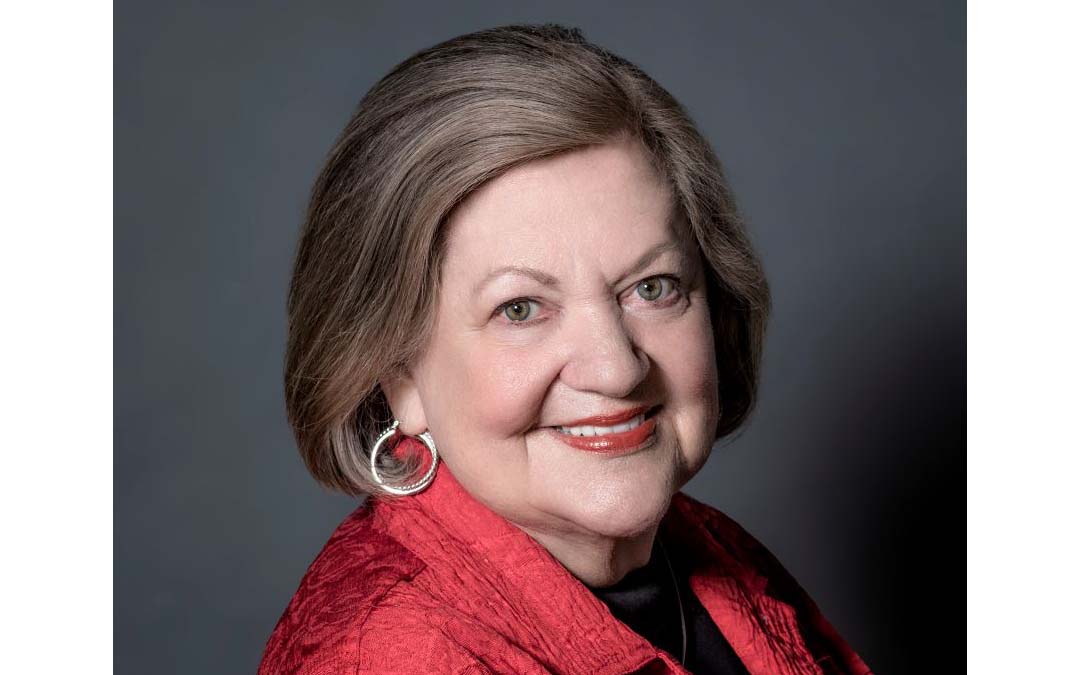HR executives, employers adjusting to new flexible work model as offices reopen again
October 9-15, 2023
By Wesley Brown
The future of work in the post-pandemic world is still murky in Arkansas and across the nation as employers adjust to the realities of the workplace.
According to several recent surveys and reports related to the colossal shift of the U.S. job market to home-based offices nearly 15 months ago due to shelter-in-place and social distance orders nationwide, many companies and HR executives are rethinking how, when and where work is done.
“The past year shifted everyone’s expectations: People don’t want to go back to pre-pandemic norms of office life, but they are also eager to turn the page on the all-remote experiment that was forced upon them for the past 15 months,” said Brian Elliott, vice president of the Future Forum, a consortium launched by Slack Technologies Inc. to help companies reimagine work in the new digital-first world. “Companies who want to attract and retain top talent must look forward to an entirely new way of working: a flexible model that fundamentally reimagines not just where but also when and how people work.”
On June 15, the Future Forum released a new global “Pulse” study that unpacks how 15 months of pandemic work has shifted employee expectations. Among the key findings, the study highlights how flexibility now ranks second only to compensation in determining job satisfaction. For example, 93% of knowledge workers want a flexible schedule, while 76% want flexibility in where they work.
The 23-page research report and back-to-work playbook also paints a picture of flexible work that is more nuanced than the choice between office-based or remote work. Instead, flexibility is shown to require a new working model that delivers always-on access to information, creates channels for consistent communication and carves out predictable working rhythms—without having to revert to an office-based 9-to-5 schedule.
According to Slack spokesman Steve Sharpe, Future Forum was formed in September 2020 by founding partners at Slack and Boston Consulting Group who brought together a working group of senior executives across a range of Fortune 500 companies to solve for ways to successfully create sustained high-performance flexibility.
The San Francisco think tank’s two primary areas of focus include conducting original research, such as the Future Forum Pulse report and case studies released June 15 on the digital-first workplace. The research group will also host executive working groups and events that are designed to help Fortune 500 leaders navigate “through the challenges and opportunities that come with navigating dramatic shifts in the world of work,” said Sharpe.
In a blog post co-written by Helen Kupp, director at Future Forum by Slack, and Debbie Lovich, managing director and senior partner at Boston Consulting Group (BCG), the research group notes that now offices have begun to reopen, most companies are planning for a hybrid future.
“However, the term hybrid not only fails to capture the scope of change that’s both possible and needed, it also points to the ‘messy middle’ of work models, where there is a greater risk of creating confusing or chaotic experiences for people unless some level of expectations and guardrails are in place,” wrote Kopp in a June 15 blog post.
“Across all of our companies, there’s no ‘one size fits all’ approach, especially because every company and every market is unique. But we have found common success in building executive alignment around principles that guide our teams and different guardrails that help bring those principles to life,” continued Kopp. “This approach enables organizations to get started at scale with hybrid work but also leaves room for us to test and learn our way to a better future.”
One of the national employers that has retooled its workforce is the Zillow Group Inc., the Seattle-based real estate data analytics giant that announced in March it was increasing its workforce by 40% or 2,000 employees by the end of 2021. As part of the company’s so-called “distributed workforce model,” Zillow said most of the new jobs were open to prospective employees regardless of where they live in the U.S.
“While we boldly reimagine how to buy and sell homes for today’s digitally minded customer, Zillow is seizing the opportunity to reimagine how we work,” says Dan Spaulding, chief people officer at Zillow. “Our Distributed Workforce Model is a more inclusive, more personalized, more flexible, more efficient way of working.”
According to Spauling, Zillow’s new post-pandemic workplace model overhauled traditional onboarding practices, which resulted in successfully integrating close to 1,500 employees remotely since March 2020, roughly 28% of the real estate tech firm’s current workforce. New practices include a “Virtual New Hire Open House” and a new hire onboarding channel developed by Slack, which is based in San Francisco.
Zillow is committed to reimagining traditional recruiting and working norms and being a leader in the future of flexible work to meet its ambitious hiring goal for 2021. “We are broadening our pipelines to attract more underrepresented talent and are providing career development opportunities that may have not otherwise existed for our employees,” said Spaulding.
Locally, employers in Central Arkansas are deploying similar hybrid models now that the COVID-19 vaccine is widely available, although vaccination rates are still well below the national norms. As of June 16, there were 1,212,128, or 40.7% of Arkansans who had received one dose of the Pfizer or Moderna vaccine. However, only a total of 914,613, or 30.3% of the more than 3 million Arkansas residents had been administered a second dose of the COVID-19 vaccine.
Both those tallies are well below the one- and two-dose national average at 52.6% and 40.4% national average, according to the latest data from the U.S. Centers for Diseases and Control (CDC).
In February, state officials sent out a memo outlining requirements for government workers to return to on-site work. Under those rules, all state employees without high-risk conditions impacted by COVID-19 have returned to work on-site. Those state employees with conditions impacted by COVID-19, however, have continued to work remotely on a case-by-case basis with the approval of cabinet-level secretaries and department heads reporting to the governor.
Shortly after Gov. Asa Hutchinson ended Arkansas’ COVID-19 state of emergency declaration on May 30 nearly 15 months after the pandemic began, that policy was updated and thousands of state government employees that were working remotely returned to their offices.
Montine McNulty, executive of the Arkansas Hospitality Association, also told The Daily Record that restaurant owners and employers in the hospitality industry are also adapting to the changing workplace. Those changes include the higher use of technology, menu variations, improved customer safety, new restaurant cleaning rules, social distancing, and the introduction of third-party delivery services DoorDash, Postmates, Uber Eats and Grub Hub.
McNulty said AHA is implementing a guidance locally from the National Restaurant Association (NRA) and American Hotel and Lodging Association to help restaurants restart with recommendations for food safety, cleaning and sanitizing, employee health monitoring, and social distancing.
Due to the ongoing worker shortage in the restaurant and leisure and hospitality industries, McNulty said the industry is now offering more flexible work arrangements and hours to those new and former frontline workers that have chosen to come back to the workplace after months of remote living.
“The fact is that the business model is not back for the hospitality industry, and it is not back for restaurants, hotels and tourism,” said McNulty, who has led AHA for more than 25 years. “It is going to take a while for that business model (because) there are a lot of changes being made and they’ve really affected us.”
Meanwhile, the Future Forum report notes that working mothers have carried a disproportionate burden through the pandemic, with half a million more women leaving the labor force than men. Even though women were working from home, the pandemic put a spotlight on the rigidity of work schedules, which led to unprecedented burnout and attrition. The Pulse survey shows this in stark detail: Women with kids score lower than men with kids across each element of the Pulse, including work-life balance (-38%), ability to manage stress (-50%) and sense of belonging (-23%).
Also, the report shows flexible working models are a potential game changer. Women with kids say that the number one benefit of a flexible schedule is “being better able to take care of personal or family obligations during the day,” while men with kids rate “better work-life balance” as the key benefit. Normalizing and encouraging flexibility for all employees is one of the keys to reversing these numbers, the report said.
Black knowledge workers also have lower satisfaction scores across the board. They have consistently lower satisfaction with their relationships at work, are less likely to believe that they are treated fairly at work and are more likely to believe they need to justify their work to their manager. Not surprisingly, Black employees are even more likely to be looking for new opportunities in the coming year: 72% of Black employees versus 51% of white employees.
Flexible work opens the door to reversing these trends. Black knowledge workers are more likely to say that working remotely is better for their sense of belonging than to say it is worse, while the opposite is true for white knowledge workers. Sixty-eight percent of Black knowledge workers want flexible work policies, compared to 56% of their white counterparts.
For companies seeking to improve diversity, geographic distribution matters: About 60% of the Black labor force is in the U.S. South, compared with only one-third of private sector jobs. Building diverse and inclusive teams is possible only when companies embrace the real flexibility that creates equitable access to opportunity.
PHOTO CAPTIONS:
1. and 2. Future of Work – Hybrid workplace model emerging out of pandemic: New study by San Francisco-based Future Form says remote work caused ‘colossal shift’ in traditional, 9-to-5 office setup.
3. The Future Forum Pulse study shows that flexibility now ranks second only to compensation in determining job satisfaction.
4. Even though women were working from home, the pandemic put a spotlight on the rigidity of work schedules, which led to unprecedented burnout and attrition, the report says.







